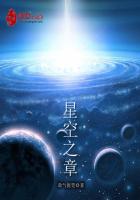SOME CHARACTERISTICS OF MEDAEVAL THOUGHT
IN the earliest days of his upward evolution man was satisfied with a very crude explanation of natural phenomena--that to which the name "animism" has been given. In this stage of mental development all the various forces of Nature are personified:
the rushing torrent, the devastating fire, the wind rustling the forest leaves--in the mind of the animistic savage all these are personalities, spirits, like himself, but animated by motives more or less antagonistic to him.
I suppose that no possible exception could be taken to the statement that modern science renders animism impossible.
But let us inquire in exactly what sense this is true.
It is not true that science robs natural phenomena of their spiritual significance. The mistake is often made of supposing that science explains, or endeavours to explain, phenomena.
But that is the business of philosophy. The task science attempts is the simpler one of the correlation of natural phenomena, and in this effort leaves the ultimate problems of metaphysics untouched.
A universe, however, whose phenomena are not only capable of some degree of correlation, but present the extraordinary degree of harmony and unity which science makes manifest in Nature, cannot be, as in animism, the product of a vast number of inco-ordinated and antagonistic wills, but must either be the product of one Will, or not the product of will at all.
The latter alternative means that the Cosmos is inexplicable, which not only man's growing experience, but the fact that man and the universe form essentially a unity, forbid us to believe.
The term "anthropomorphic" is too easily applied to philosophical systems, as if it constituted a criticism of their validity.
For if it be true, as all must admit, that the unknown can only be explained in terms of the known, then the universe must either be explained in terms of man--_i.e_. in terms of will or desire--or remain incomprehensible. That is to say, a philosophy must either be anthropomorphic, or no philosophy at all.
Thus a metaphysical scrutiny of the results of modern science leads us to a belief in God. But man felt the need of unity, and crude animism, though a step in the right direction, failed to satisfy his thought, long before the days of modern science.
The spirits of animism, however, were not discarded, but were modified, co-ordinated, and worked into a system as servants of the Most High. Polytheism may mark a stage in this process; or, perhaps, it was a result of mental degeneracy.
What I may term systematised as distinguished from crude animism persisted throughout the Middle Ages. The work of systematisation had already been accomplished, to a large extent, by the Neo-Platonists and whoever were responsible for the Kabala. It is true that these main sources of magical or animistic philosophy remained hidden during the greater part of the Middle Ages; but at about their close the youthful and enthusiastic CORNELIUS AGRIPPA(1486-1535)[1] slaked his thirst thereat and produced his own attempt at the systematisation of magical belief in the famous _Three Books of Occult Philosophy_. But the waters of magical philosophy reached the mediaeval mind through various devious channels, traditional on the one hand and literary on the other.
And of the latter, the works of pseudo-DIONYSIUS,[2] whose immense influence upon mediaeval thought has sometimes been neglected, must certainly be noted.
[1] The story of his life has been admirably told by HENRY MORLEY(2 vols., 1856).
[2] These writings were first heard of in the early part of the sixth century, and were probably the work of a Syrian monk of that date, who fathered them on to DIONYSIUS the Areopagite as a pious fraud. See Dean INGE'S _Christian Mysticism_(1899), pp. 104--122, and VAUGHAN'S _Hours with the Mystics_(7th ed., 1895), vol. i. pp. 111-124. The books have been translated into English by the Rev. JOHN PARKER (2 vols.
1897-1899), who believes in the genuineness of their alleged authorship.
The most obvious example of a mediaeval animistic belief is that in "elementals"--the spirits which personify the primordial forces of Nature, and are symbolised by the four elements, immanent in which they were supposed to exist, and through which they were held to manifest their powers. And astrology, it must be remembered, is essentially a systematised animism.
The stars, to the ancients, were not material bodies like the earth, but spiritual beings. PLATO (427-347 B.C.) speaks of them as "gods". Mediaeval thought did not regard them in quite this way.
But for those who believed in astrology, and few, I think, did not, the stars were still symbols of spiritual forces operative on man.
Evidences of the wide extent of astrological belief in those days are abundant, many instances of which we shall doubtless encounter in our excursions.
It has been said that the theological and philosophical atmosphere of the Middle Ages was "scholastic," not mystical.
No doubt "mysticism," as a mode of life aiming at the realisation of the presence of God, is as distinct from scholasticism as empiricism is from rationalism, or "tough-minded" philosophy (to use JAMES' happy phrase) is from "tender-minded". But no philosophy can be absolutely and purely deductive.
It must start from certain empirically determined facts.















